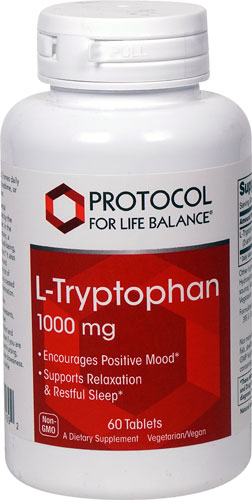Your loved ones likely mean the world to you—so much so that caring for them if they’re ill or disabled is less an option than a must.
And yet, while there are few roles as noble and admirable than a caregiver, providing both occasional and round-the-clock support does not arrive without considerable stress.

“A substantial body of research shows that family members who provide care to individuals with chronic or disabling conditions are themselves at risk,” the Family Caregiver Alliance notes—which, to anyone who has fulfilled this rewarding but often-challenging role knows, is difficult to see because you are too consumed with your duties. Emotional exhaustion, mental fatigue, a poor diet and sleep, cynicism and detachment—all are common
symptoms of the burnout that can ensue for a caregiver, to say nothing of their increased risk of depression and anxiety.
If all of this sounds familiar to you, do know that there are a number of ways you can
mitigate your stress to ensure that your loved one is provided for while you, too, are emotionally-buoyed, physically strong, and capable. Here are five self-care tips to start putting into place today:
1. Reduce stress within seconds
A long bath, breaking away for a
yoga class, even stretching before bed—all may seem either impossible or self-indulgent to caretakers, whose lives tend to revolve around the loved one for whom they’re supplying care.
When faced with overwhelm, however, there’s a faster way to achieve a sense of self-control and peace. As Harvard Health reminds us, the human body has the capacity to combat stress through the “relaxation response,” which is controlled by the parasympathetic nervous system—one of three divisions of the autonomic nervous system that regulates digestion, heartrate and more (indeed, some call it the “rest and digest” part of your nervous system). Activating it can instill a feeling of lasting calm that may allow you to push through the more difficult moments of your day (or, let’s face it, night).
While
asana—the physical postures of yoga—is one of the best ways to stimulate your PNS, you can also “trigger” it through intentionally slowing your breath down, even during times when your
sympathetic nervous system is in “fight-or-flight” mode.
To do so, pause wherever you are and with whatever you may be doing. Take a minute to feel your body—particularly your feet on the ground—and breath slowly and deliberately. The balance and relief you’ll feel will be immediate, to the point that you may want to make this breathing technique a part of your daily habits.
2. Cope with compassion
Ten to 15 percent of health care professionals will experience some form of substance abuse during their career—and the results are similar for the 44 million family caregivers in the U.S.
These negative behaviors are attributed to a host of factors, from the despair in watching a loved one’s decline to the lack of social connections that often arrive with caregiving to the resentment that can escalate towards other loved ones who aren’t doing their fair share to assist.
That being said, alcohol misuse, drug abuse, smoking, a lacking diet and inadequate sleep can
wreak havoc on your body and mind, and render you all the less able to care for your loved one with patience and effectiveness.
Rather than “relying” on self-punishing behaviors such as these, strive to give yourself as much TLC as you would the loved one you’re caring for. This begins with the voice you use to speak to yourself. Think of it as the wise, resourced and benevolent adult inside of you, who, like a devoted parent, will tell you to eat right, to get a good night’s sleep, to stay away from harmful substances—and mean it.
Then, experiment with self-care practices that feel good, right, true, and doable for you. For some, this may be going on a brisk walk after dinner. For others, it may mean reading a book before turning in for the night. For others still it may mean breaking away from the house to get a pedicure, or for a tennis game or luxuriating over a meal with a friend. Whatever it is, prioritize it, and use it to “crowd out” unhealthy actions. Which brings us to our next point…
3. Find respite care
Caring for a parent, spouse, sibling or child may seem like a moral duty, but even the strongest among us are not able to care for someone 24/7 without taking a breather. (Logistically, for someone who is, say, taking care of an adult with Alzheimer’s, even taking a shower may be unfeasible at times.)
This is where “respite care” is vital. Respite care is when you place your loved one with another family member, friend or support worker for a certain amount of time. If a family member or friend is not available, reach out to your local Adult Protection Services to enlist the aid of a caregiver who can come to your home.
4. Take advantage of telemedicine
Managing your loved one’s medical care can be an extremely time-consuming task, particularly if there’s a commute involved in getting them to one of their physician’s offices.
With this in mind,
consider using telemedicine whenever possible—a particularly smart choice for caregivers who tend to the elderly, who have a heightened risk of being vulnerable to COVID-19. Telemedicine has transformed the way health care is provided, and offers everything from remote patient monitoring via mobile apps to patient-doctor consultations. Inquire with your loved one’s physician regarding availability, and note how it reduces stress
and gives you more room on your plate.
5. Give precedence to social connections through virtual and in-person support
Data reveals that 40 to 70 percent of caregivers experience symptoms of clinical depression, which is frequently caused by feelings of loneliness and isolation. Statistics aside, and this makes intuitive sense: Caring for a loved one and managing their health, happiness and life often leaves very little energy for social pursuits, previous habits, and one’s “pre-caregiving” lifestyle (not to mention the trepidation others may have about being near illness or a disability).
What’s more, the friends a caregiver once enjoyed may have a challenging time relating to their situation, which can magnify a caregiver’s loneliness even more.
This is where finding support—either on-line, in-person or both—is imperative. Joining a local support group for caregivers can guarantee you’re surrounded by people who not only understand your circumstances but may also offer encouragement, a kind ear, and coping tips. (Family Caregiver Alliance, for instance, offers
unmoderated, online support for families, partners, and other caregivers of adults with dementia, Alzheimer’s, stroke, brain injury,and “other chronic debilitating health conditions,” the FCA reports.)
At the same time, you can use social media to connect with others who may be in the same boat. As you should, as being seen, heard, validated and helped is the key to caring well for your loved and, importantly, yourself.
 “A substantial body of research shows that family members who provide care to individuals with chronic or disabling conditions are themselves at risk,” the Family Caregiver Alliance notes—which, to anyone who has fulfilled this rewarding but often-challenging role knows, is difficult to see because you are too consumed with your duties. Emotional exhaustion, mental fatigue, a poor diet and sleep, cynicism and detachment—all are common symptoms of the burnout that can ensue for a caregiver, to say nothing of their increased risk of depression and anxiety.
If all of this sounds familiar to you, do know that there are a number of ways you can mitigate your stress to ensure that your loved one is provided for while you, too, are emotionally-buoyed, physically strong, and capable. Here are five self-care tips to start putting into place today:
“A substantial body of research shows that family members who provide care to individuals with chronic or disabling conditions are themselves at risk,” the Family Caregiver Alliance notes—which, to anyone who has fulfilled this rewarding but often-challenging role knows, is difficult to see because you are too consumed with your duties. Emotional exhaustion, mental fatigue, a poor diet and sleep, cynicism and detachment—all are common symptoms of the burnout that can ensue for a caregiver, to say nothing of their increased risk of depression and anxiety.
If all of this sounds familiar to you, do know that there are a number of ways you can mitigate your stress to ensure that your loved one is provided for while you, too, are emotionally-buoyed, physically strong, and capable. Here are five self-care tips to start putting into place today:



